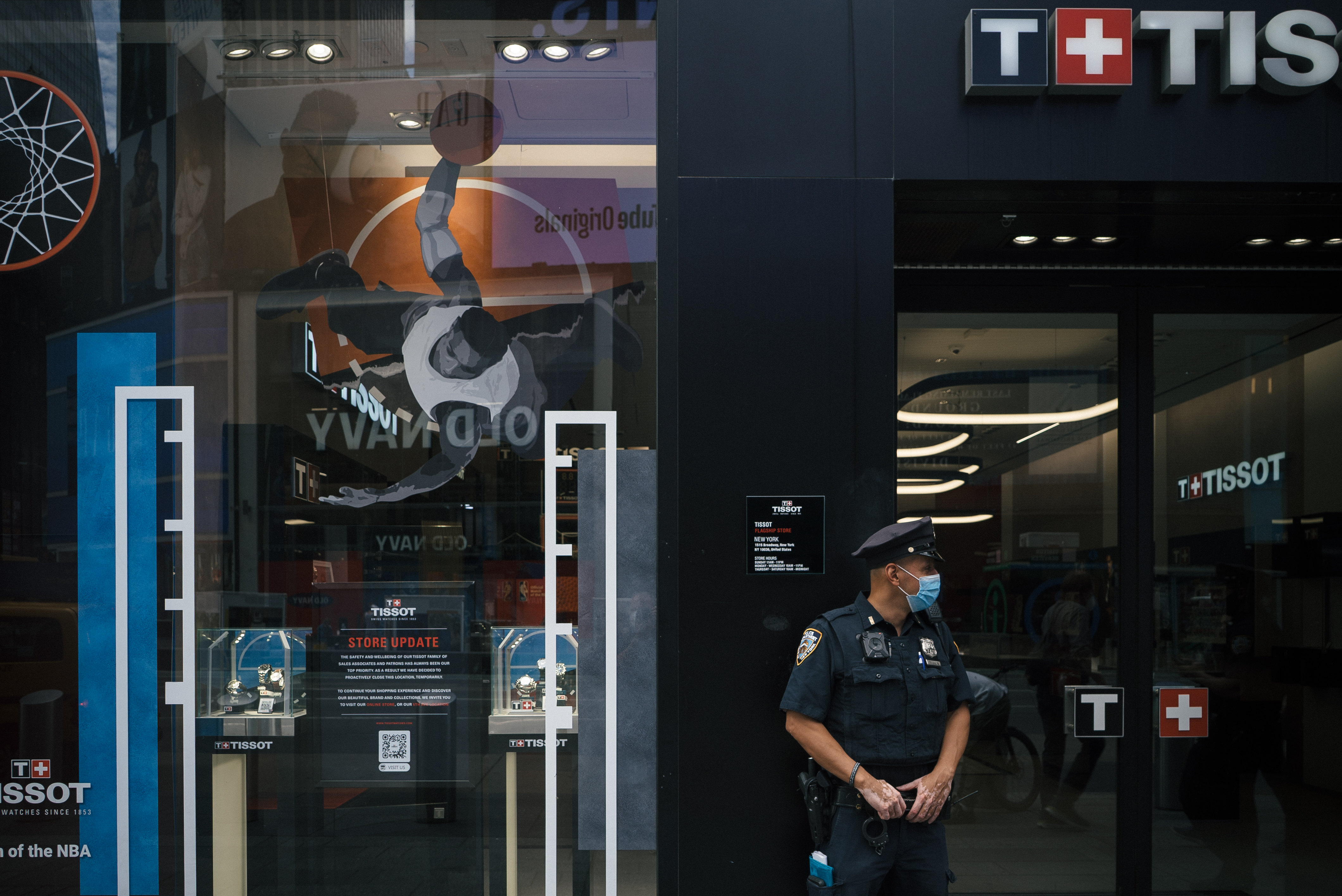Contact Us
To provide feedback on the Community Policing Dispatch, e-mail the editorial board at CPDispatch@usdoj.gov.
To obtain details on COPS Office programs, publications, and resources, contact the COPS Office Response Center at 800-421-6770 or AskCopsRC@usdoj.gov

U.S. Department of Justice
Office of Community Oriented Policing Services
Washington, DC 20530
 In an ongoing effort to keep a finger on the pulse of officer experiences
in the field, the National Fraternal Order of Police (FOP)
routinely engages in surveys of its national membership of more than
356,000 to gauge the impacts of issues relevant for the profession. Most
recently, the National FOP gathered preliminary data that reveals the
impact policing during the COVID-19 pandemic may have on law enforcement
wellness now and well into the future. Through the Collaborative Reform
Initiative Technical Assistance Center (CRI-TAC), the National FOP has been
able to share insights and recommendations for best practices moving
forward regarding wellness and policing during a pandemic.
In an ongoing effort to keep a finger on the pulse of officer experiences
in the field, the National Fraternal Order of Police (FOP)
routinely engages in surveys of its national membership of more than
356,000 to gauge the impacts of issues relevant for the profession. Most
recently, the National FOP gathered preliminary data that reveals the
impact policing during the COVID-19 pandemic may have on law enforcement
wellness now and well into the future. Through the Collaborative Reform
Initiative Technical Assistance Center (CRI-TAC), the National FOP has been
able to share insights and recommendations for best practices moving
forward regarding wellness and policing during a pandemic.
Not surprisingly, the pandemic has created additional stress beyond the traditional levels felt by officers and deputies, with almost 80 percent of survey respondents reporting their stress levels were slightly or much higher during the pandemic than pre-pandemic levels. The two greatest sources of increased stress were (1) fear of infecting family members or loved ones with the virus and (2) increased enforcement of restrictions on the public. Approximately two-thirds of survey respondents also perceive that their families have suffered slightly to much higher levels of stress related to the officer’s work during the pandemic.

View the CRI-TAC webinar:
"How to Prevent a Global Crisis from Becoming a Personal One: Stress Management in High Stress Times"
Guided by the idea of likening the pandemic to a protracted critical incident, presenters provided strategies to better enable law enforcement agencies to support, monitor, and evaluate their personnel during periods of added stress. For example, they recommended that agencies establish multifaceted and diverse support services, recognizing that each individual officer will respond differently but all need and acquire support in different ways. As stress is also cumulative and the duration of pandemic effects increases, agencies should be prepared to deliver support services not only during the pandemic period but into the future as well. Given the impact on families, agencies should seek to educate not only their staff but also their families not only about the potential physical effects of the pandemic but also about added stressors and potential mental health impacts.
As the law enforcement profession navigates the challenges of the pandemic and other trends, monitoring the wellness of personnel and their families will remain important. Law enforcement agencies should seek to be agile at identifying officers who may be struggling with additional challenges related to the pandemic. For example, how has the single parent whose child cannot physically attend school because of restrictions been impacted?
 While most agencies have been vigilant about monitoring their officers’
physical health during the pandemic, agencies should also take equal care
to monitor the mental health of personnel as stress levels increase.
Turning again to data gathered by the National FOP, considerably more than
half of officers and deputies felt positive about the level of support
their agency provided regarding physical dangers of the pandemic and with
the provision of adequate PPE. However, barely a third felt the same level
of support from their agency regarding increased mental and emotional
stresses related to the pandemic. Thus, law enforcement agencies should be
mindful to conduct ongoing evaluations of support services, ensuring that
interventions serve to maximally impact maintenance and improvement of
officer and deputy mental health now and into the future.
While most agencies have been vigilant about monitoring their officers’
physical health during the pandemic, agencies should also take equal care
to monitor the mental health of personnel as stress levels increase.
Turning again to data gathered by the National FOP, considerably more than
half of officers and deputies felt positive about the level of support
their agency provided regarding physical dangers of the pandemic and with
the provision of adequate PPE. However, barely a third felt the same level
of support from their agency regarding increased mental and emotional
stresses related to the pandemic. Thus, law enforcement agencies should be
mindful to conduct ongoing evaluations of support services, ensuring that
interventions serve to maximally impact maintenance and improvement of
officer and deputy mental health now and into the future.
Learn More
To learn more about the CRI-TAC, download a brochure, or request assistance for your agency, visit the CRI-TAC website.
Sherri Martin, National Director of Wellness Services
National Fraternal Order of Police
Subscribe to Email Updates
To sign up for monthly updates or to access your subscriber preferences, please enter your email address in the Subscribe box.






